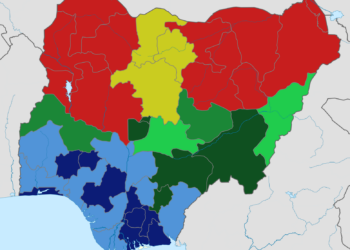Hello, young friends! Are you ready to learn about one of the most important skills that you need to manage money properly? Well, in our blog post today, guide, are going to be teaching you about budgeting, why it is important, how it helps in the long run, and how you can create your own budget to manage your money now and in the future.
Why Budgeting Matters
Imagine you’re going on a trip with a map that shows where you’re going and how to get there. That’s what a budget does for your money! It helps you plan and use your money in the best way possible. If you don’t have a budget, you might run out of money too quickly, or you might miss saving up for something special.
Some of you get pocket money from your parents, earn some money from doing chores in the house or receive cash gifts from uncles and aunts that you have started saving. Later in life, you are going to
The Basics: Needs, Wants, and Desires
Before we jump into creating a budget, it is important that you understand the basics of the difference between needs, wants and desires.
Needs: These are the things you must have to live, like food, clothes, and a place to live.
Wants: These are things that make life more fun and comfortable, like toys or a new bike.
Desires: These are things you wish for but don’t really need, like fancy clothes or the latest gadgets.
Understanding the difference between needs, wants, and desires will help you decide where your money should go first.
Next: Decide what is important
When you plan your budget, think about what matters most. It’s important to focus on your needs before your wants or desires. Here’s how you can prioritize:
Cover Your Needs: Make sure you have enough money for the things you need.
Include Some Wants: Add some money for things you’d like to have.
Save for the Future: Put a little money aside each time you get pocket money, so you can save up for special things in the future. These savings may help you achieve some of your desires and take care of needs and wants in the future.
Adults call this prioritizing or creating a scale of preference, which you will learn more about as you grow older.
Creating a Budget
Now it’s time to make your own budget! So, even if you do not have any pocket money or income from chores right now, you can learn these steps now and practice them when you start to earn. You can also do an activity with your parents, where you pretend that you are earning some money and then create your budget.
Write down how much pocket money you get each week, or month
Decide how much money should go to your needs (like school supplies).
Decide how much money should go to your wants (like a new toy).
Decide how much money should go to your savings (for something special later).
As you spend for each of the items on your budget record what you have also spent. Sometimes you may spend more and sometimes, you may spend less or the exact amount. Your goal is always to try to spend the same amount in your budget or less. This is what adults call “cutting your coat according to your cloth”
Sticking to Your Budget
The trickiest part of budgeting is sticking to it! Here are some tips to help:
Write It Down: Keep a journal or a notebook where you write down your spending.
Think Before You Spend: Ask yourself, “Is this something I need, want, or desire?”
Be Flexible: It’s okay to change your budget if your needs, wants, or desires change over time.
As you grow older, your budget will include more things like rent, bills, and transportation. By practicing budgeting now, you’ll be a money-smart adult in the future!
_________________ Omagbitse Barrow is the Founder and Chief Executive of Learning Impact, an organization that supports organizations and people to be better. At Learning Impact, we recognize the importance of life skills education for children and Omagbitse has pioneered the development of books, games and learning resources to teach children life skills and prepare them for a successful future. https://www.lifeskillsafrica.com



















































































 EduTimes Africa, a product of Education Times Africa, is a magazine publication that aims to lend its support to close the yawning gap in Africa's educational development.
EduTimes Africa, a product of Education Times Africa, is a magazine publication that aims to lend its support to close the yawning gap in Africa's educational development.